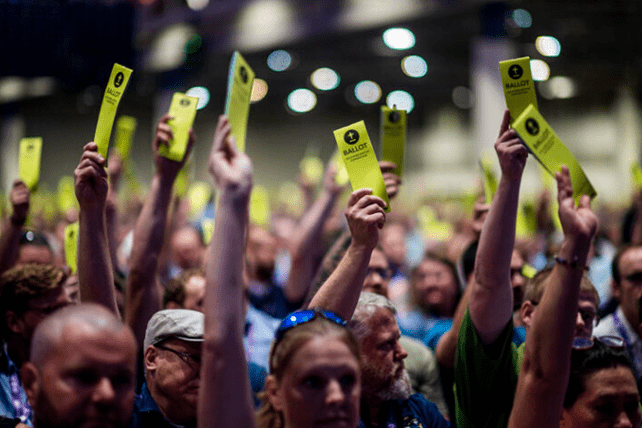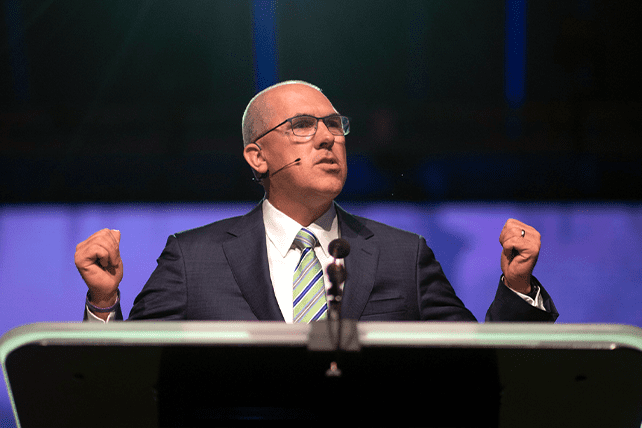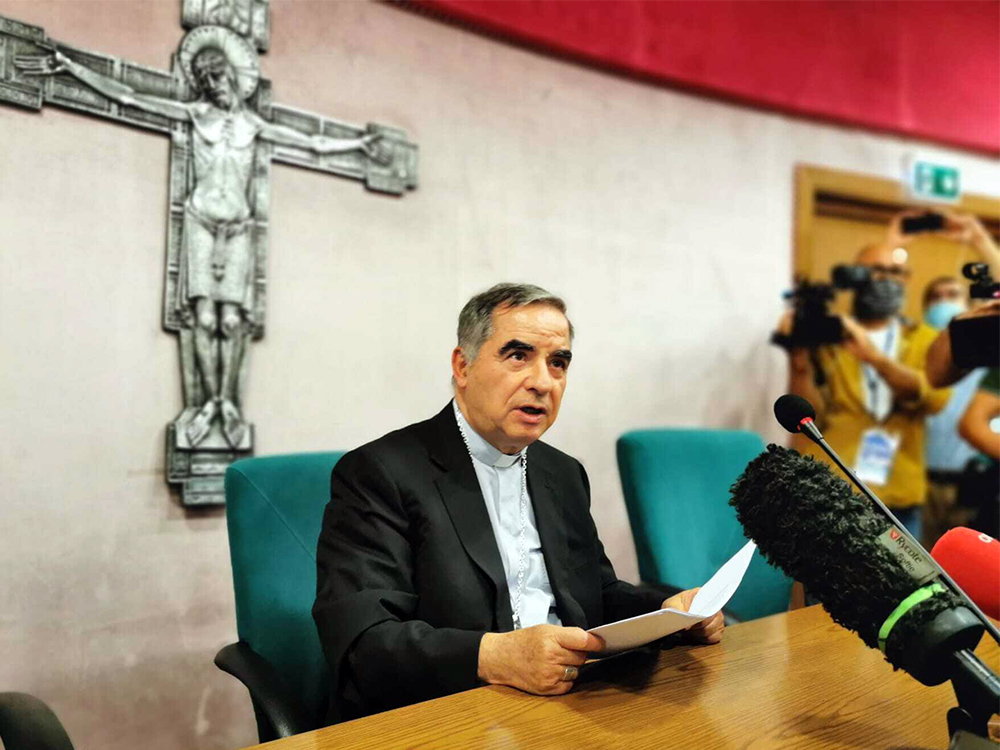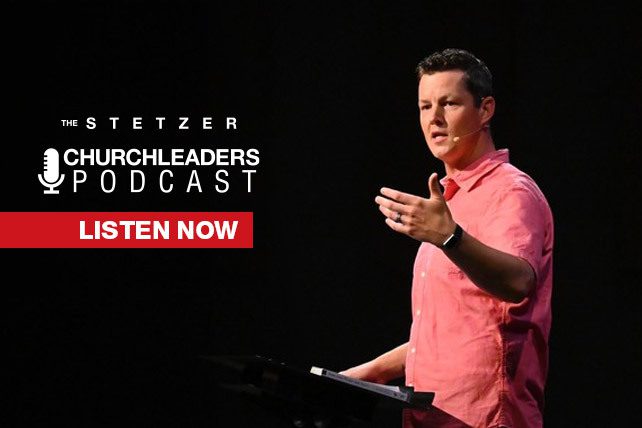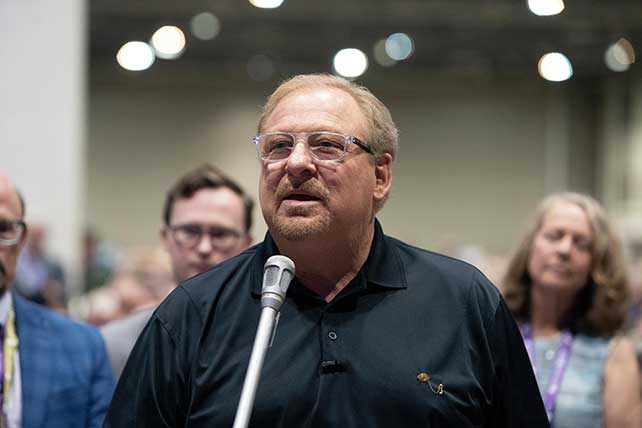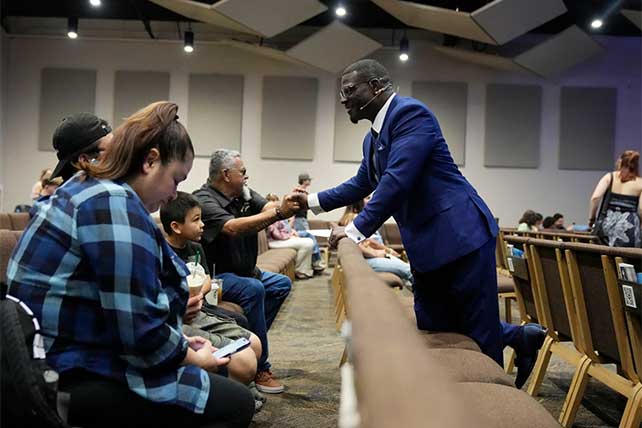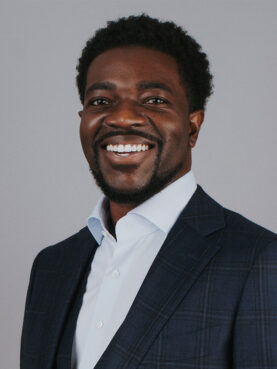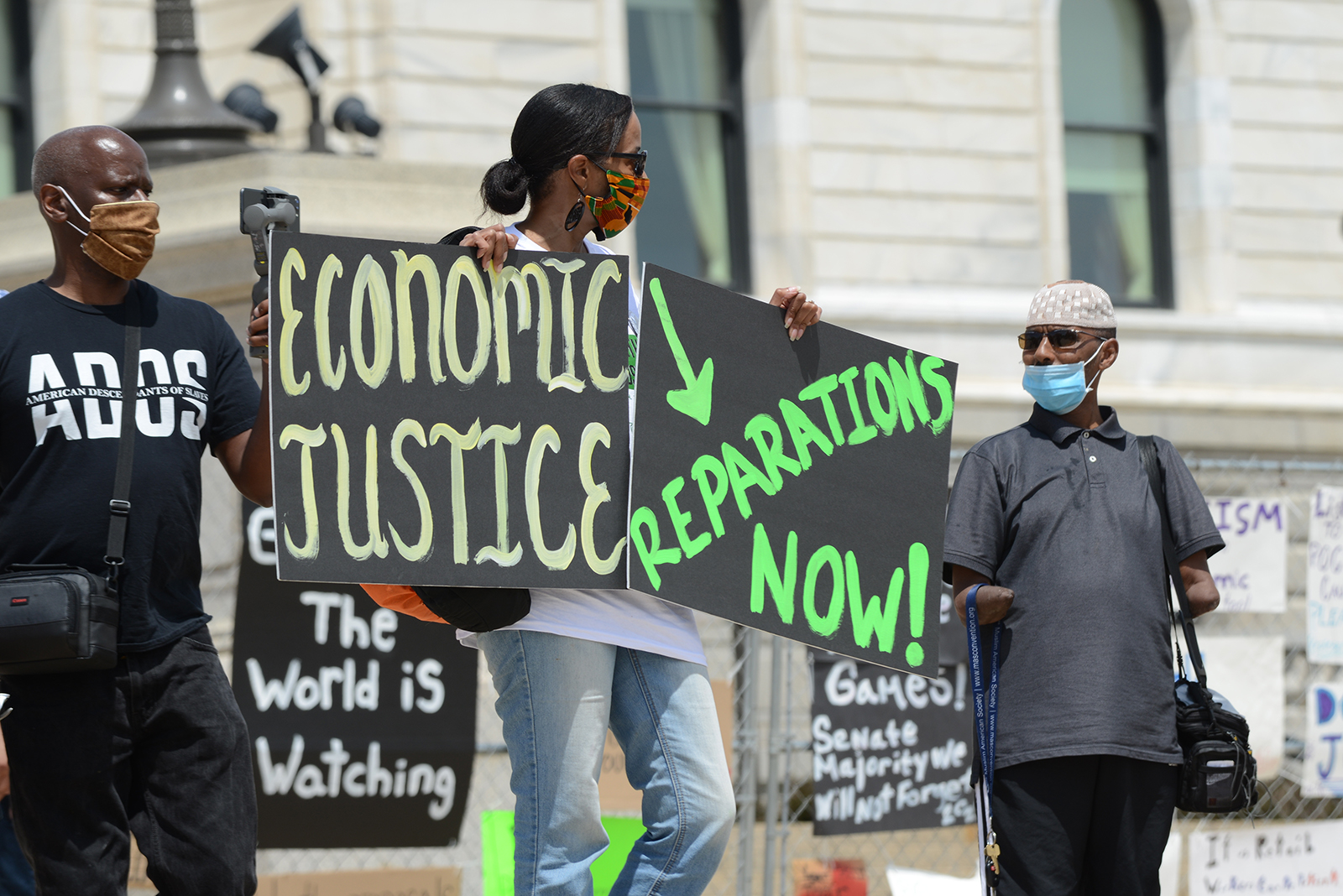NEW ORLEANS (RNS) — During the opening day of their annual meeting, Southern Baptists reelected a president, debated the place of women leaders in the church and spent hours debating using Robert’s Rules of Order.
Still, nearly 10 hours after the opening gavel, key issues that brought nearly 13,000 members of the nation’s largest Protestant denomination to the Ernest N. Morial Convention Center in New Orleans remained unsettled, including the status of reforms meant to address the issue of sexual abuse.
The meeting of local church representatives, known as messengers, kicked off with prayer and singing, followed by some legislative sparring and the resolution of a messenger’s complaint dating back to the previous annual meeting.
But once underway in earnest, the meeting dealt with motions in rapid-fire: a resolution on abortion that had been rejected in committee was proposed from the floor; requests were made for more transparency from the SBC’s seminaries and other agencies; calls were heard to investigate churches that minister to the LGBTQ community and to release security footage from the 2021 annual meeting in Nashville that allegedly showed a controversial exchange between Georgia pastor Mike Stone, then a presidential candidate, and an abuse survivor.
Stone’s supporters have long claimed he was falsely accused of mistreating the survivor on the eve of a close election he lost. His supporters hoped to have the video released to clear his name before Tuesday’s presidential election, when he was again a candidate. The motion was ruled out of order.
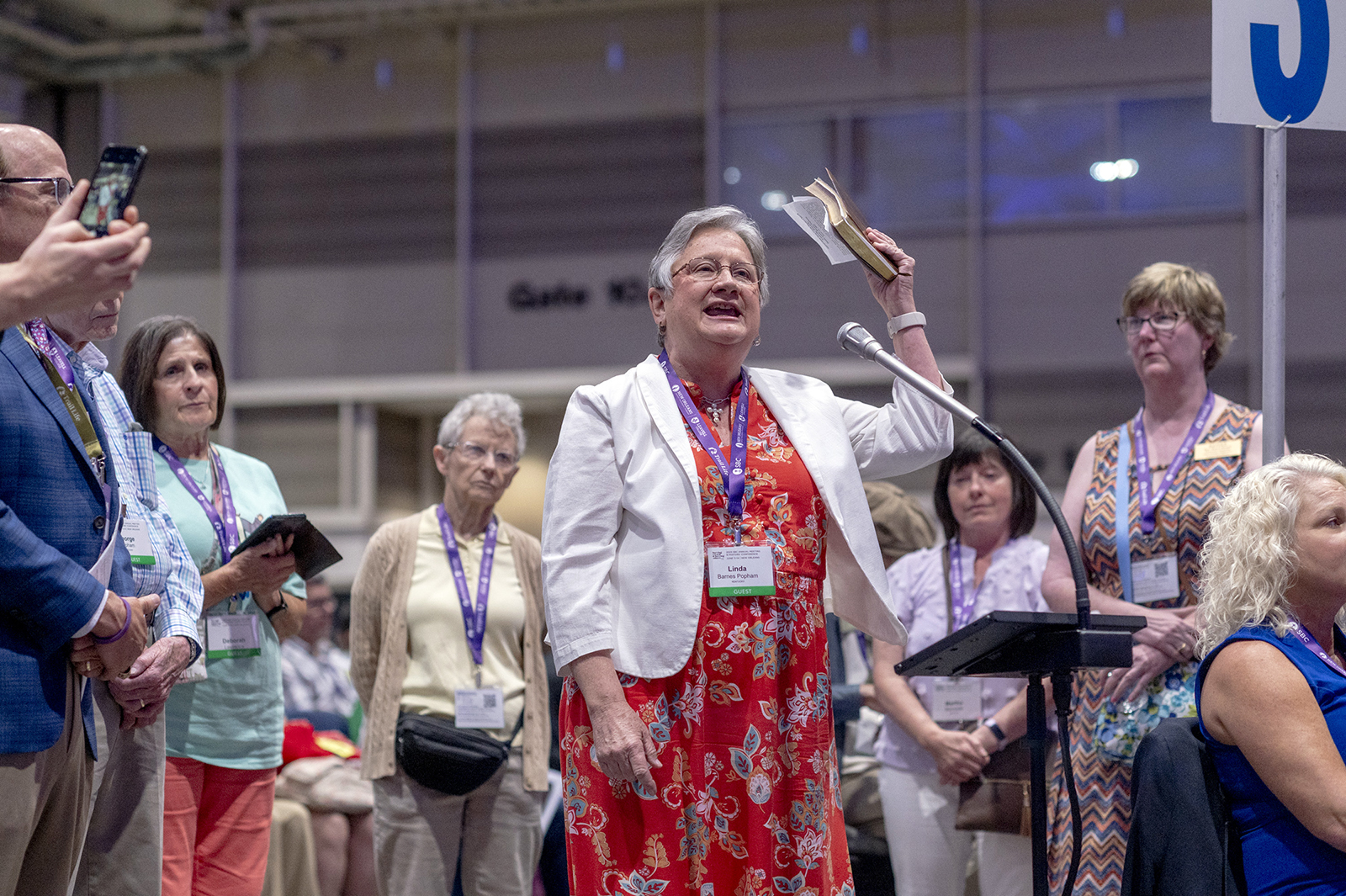
The Rev. Linda Barnes Popham requests the reinstatement of her church at the Southern Baptist Convention annual meeting in New Orleans, Tuesday, June 13, 2023. RNS photo by Emily Kask
Messengers also heard appeals from three churches that had been kicked out of the SBC earlier this year, including Saddleback Church in Southern California, one of the nation’s largest and most prominent churches, which has been ruled out of “friendly cooperation” with the SBC for having women pastors. The denomination’s statement of faith says that the office of pastor is limited to men.
The messengers have voted on those appeals, but the results will not be reported till Wednesday (June 14). That same day messengers will debate a proposed constitutional amendment that would ban any church where a woman has the title of pastor, including children’s pastors and other staff roles that are not that of lead pastor of a church.
During a question-and-answer session, Kevin Ezell, president of the SBC’s North American Mission Board, was asked about the agency’s finances in light of a report of years of overspending at one of the denomination’s seminaries.
That report found $140 million in overspending over two decades and criticized a former president of the seminary who spent $11,000 on an espresso machine, more than $60,000 on Christmas decorations and more than a million dollars on renovating the presidential residence.
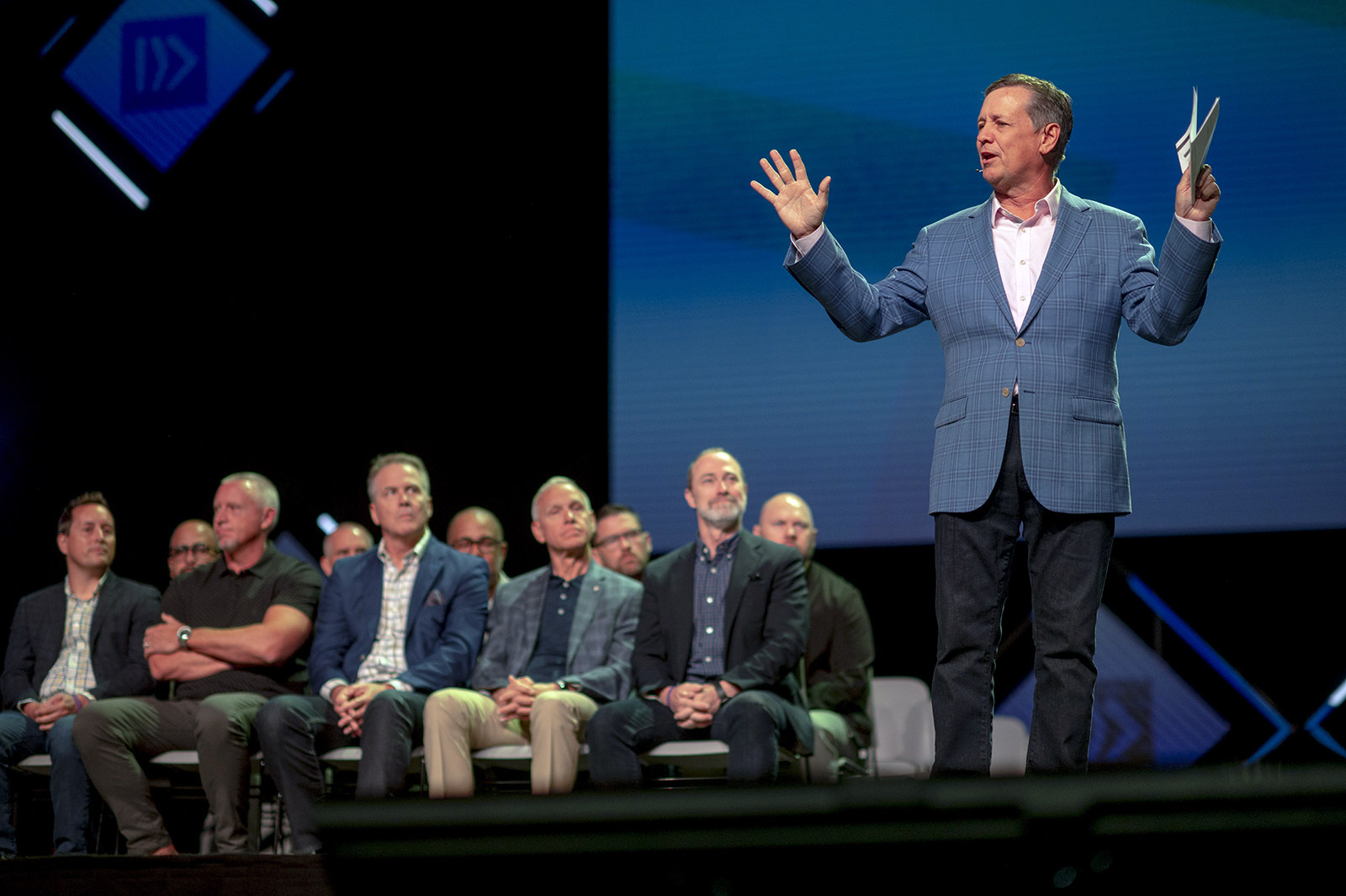
Kevin Ezell, president of the North American Mission Board, gives the NAMB report during the Southern Baptist Convention annual meeting at the Ernest N. Morial Convention Center in New Orleans, La., on June 13, 2023. RNS photo by Emily Kask
“I own my own home, have a Keurig and go to Hobby Lobby for my Christmas decorations,” Ezell said, to appreciative laughter from the messengers.
Ezell was followed by a report from Paul Chitwood, head of the SBC’s International Mission Board, and a ceremony celebrating a group of new missionaries heading around the world, from Poland to Japan.
Chitwood was asked pointedly by critics of the COVID-19 vaccine about requiring SBC missionaries to have the shot during the pandemic. He answered that for decades the IMB has required vaccination and had been concerned that missionaries would have been kicked out of the countries where they serve without the vaccine.

